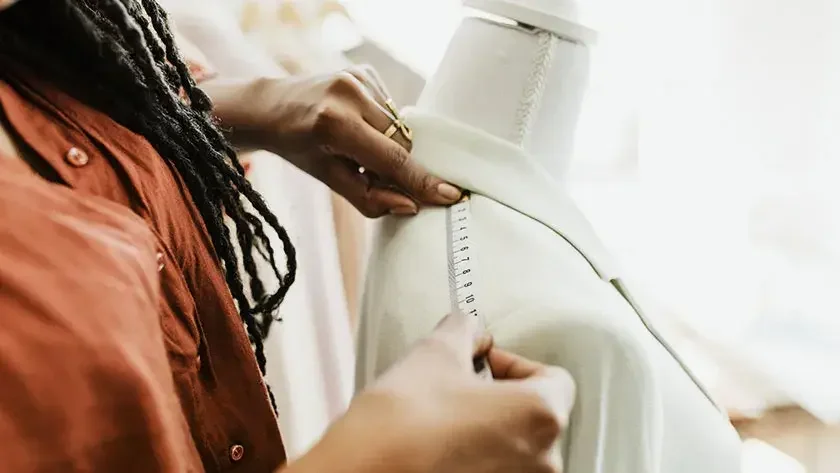Running a clothing company requires creativity, drive, and some solid business knowledge. A little know-how and guidance from experts already working in the industry can help you get there.
Here's what you need to know to launch a business in the clothing industry.

How to create a good business plan
The first thing you should do when starting a clothing company is to make a business plan that includes design, manufacturing, material, and labor costs.
"This will help you determine what kinds of options you have available to you as a new business owner and what options are going to be out of your budget," Mike Nemeroff, the CEO and co-founder of Rush Order Tees, says. "For example, making your clothes out of a high-quality, expensive material is great but not if you can't afford to manufacture it."
The way in which you choose to manufacture your clothing is a particularly important component of your business plan. According to Zino Haro, the CEO of Uni-Ke, you could design the clothing and then fully outsource the labor. Alternatively, you could curate clothing from other sources and either drop ship it—meaning you order it on demand—or preorder it. The third way is to make your own clothing.
You should also outline the section of the market you are hoping to target, create a customer profile, and begin crafting a sales strategy.
How much it costs to start a clothing line
Clothing company starting budgets can vary widely, from a few hundred dollars to get an Etsy store off the ground to millions for a funded venture. Minnie Lin, owner of Belle & Kai, says you should prepare to invest $10,000 to $20,000 at first. You'll spend most of that on inventory.
Once you've determined your budget, you'll need to find a production partner to help you manufacture your clothing. Attending fashion trade shows is a good way to meet potential production partners. Asking friends and connections you have in the industry is another good way to get referrals. When you meet production partners, you will want to enquire about minimum order quantity, or MOQ.
"Many manufacturers won't accept orders of less than 100 pieces per style, but when starting out, that is hardly feasible," says Lin. "I have found vendors that will accept a MOQ of 25 to 50 pieces. Keep in mind that the price per piece will be higher when ordering a lower quantity, so you will have tiny profit margins when you first start out."
Where to sell your new brand
Many new clothing lines establish an online presence before investing in a brick-and-mortar location.
While Amazon can be effective, it may not work for your products. A better option can be to start your own website and then use paid ads to get people on your product landing page.
Lin does well on Etsy, but she says, "your business on Etsy is truly not your own and Etsy can decide to close your shop at their discretion. Shopify is a great platform as well for e-commerce. But you'll have to drive your own traffic to it."
Should you get an LLC?
According to Lin, while you could be a sole proprietor and do a DBA ("doing business as" name) in the county where your clothing company is located, an LLC is a better choice. If your business is a sole proprietorship or a partnership, you and your business are legally the same "person." This means that your business debts are also your personal debts. And if your business partner or an employee is accused of negligence, your personal assets might be at risk.
If you have an LLC, on the other hand, you can protect yourself from debts and liabilities that your business may have. LLCs are responsible for their own debts and obligations, and although you can lose the money you have invested in the company, your personal assets cannot be seized.

